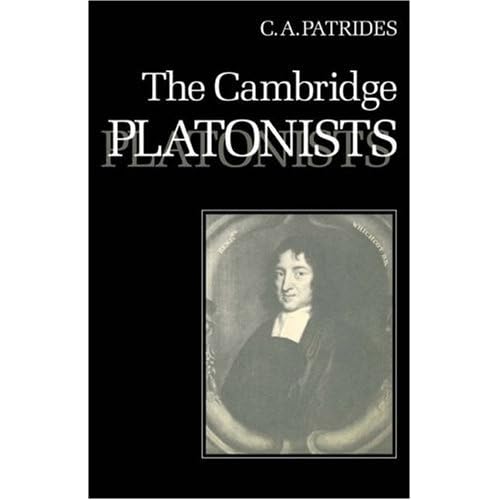This way Montague Summers introduces these 'histories' of 'Vampires' from More's work in chapter III of The Vampire in Europe, and one can even find a portrait of More. Before him, Dudley Wright in Vampires and Vampirism claimed that 'Dr Henry More, in his Antidote against Atheism, argues for the reality of vampires', even though we know that More would never have heard of the word vampire.
Nevertheless, apparitions and spirits played a role in his work which essentially aimed at proving the existence of God: 'The grand truth which wee are now to bee imployed about, is the proving that there is a God; And I made choice of this subject as very seasonable for the times wee are in, and are coming on, wherein Divine Providence granting a more large release from Superstition, and permitting a freer presuall of matters of Religion, then in former Ages, the Tempter would take advantage where hee may, to carry men captive out of one darke prison into another, out of Superstition into Atheisme it self.' (Book One, 1)
 It is in Book Three of his Antidote that he handles the subject of apparitions, witches, the pied piper and various examples of magic and sorcery. Interestingly, in the modern reprint of some extracts of the book in The Cambridge Platonists edited by C. A. Patrides and published by Cambridge Univ. Press in 1969, only the chapter headings of the third book are printed. Obviously, Patrides finds it hard to take this chapter seriously:
It is in Book Three of his Antidote that he handles the subject of apparitions, witches, the pied piper and various examples of magic and sorcery. Interestingly, in the modern reprint of some extracts of the book in The Cambridge Platonists edited by C. A. Patrides and published by Cambridge Univ. Press in 1969, only the chapter headings of the third book are printed. Obviously, Patrides finds it hard to take this chapter seriously:'It is however necesarry', writes Patrides in the introduction, 'to remember that even as More was rising to the apex of his philosophical endeavours, he was also falling into belief in spiritualism, occultism, witchcraft. His indulgence in these perversities sets him quite apart from the other Cambridge Platonists, in a manner distressingly reminiscent of Iamblichus' deviation from Neoplatonism through his practice of theurgy. Admittedly More made an effort to explain his uncritical fondness for the occult. He wished to awaken all 'benummed and lethargic Mindes' to an awarenes that 'there are other intelligent Beings besides those that are clad in heavy Earth or Clay'. But he also thought that such an effort was doomed to failure unless one first established the existence of witches. Is not the denial of witches tantamount to a denial of spirits, which is bound to lead to a denial of God? 'No Spirit,' said More, 'no God.' We are reminded of Sir Thomas Browne:
I have ever beleeved, and dow now know, that there are Witches; they that doubt of these, doe not onely deny them, but Spirits; and are obliquely and upon consequence a sort not of Infidels, but Atheists.
More's actual demonstratoin of this thesis is certainly unnerving. In both the entire third book of An Antidote against Atheism (1653) and throughout The Immortality of the Soul (1659) he introduced whatever might be comprehended under the 'one generall terme of Apparitions', including for example such 'extraordinary effects' as 'speakings', knockings, opening of doores when they were fast shut, sudden lights in the midst of a room floating in the aire, and then passing and vanishing...' Henry More, I fear could not always tell a hawk from a handsaw.' (p. 32)
In any case, considering the aim of Montague Summers: presenting witchcraft as a reality as viewed from his particular religious point of view, one may understand why he was much more interested in these obscurer aspects of More's book than Patrides.
1 comment:
C.A. Patrides was 'shocked' to discover Browne's attendance at a witch-trial, but in fact many members of the Royal Society, the scientific community encouraged by Charles II, believed in unicorns, mermaids and such like. The logic of belief in witches being, no God equals no spirits, therefore a hierarchy of angelic and demonic beings was given credence until the 18th century 'Age of Reason' throughout Europe. The single-most line in the Bible which more or less endorsed European genocide (mostly women) is of course Exodus 22:18 'Thou shalt not suffer a witch to live'.
Post a Comment